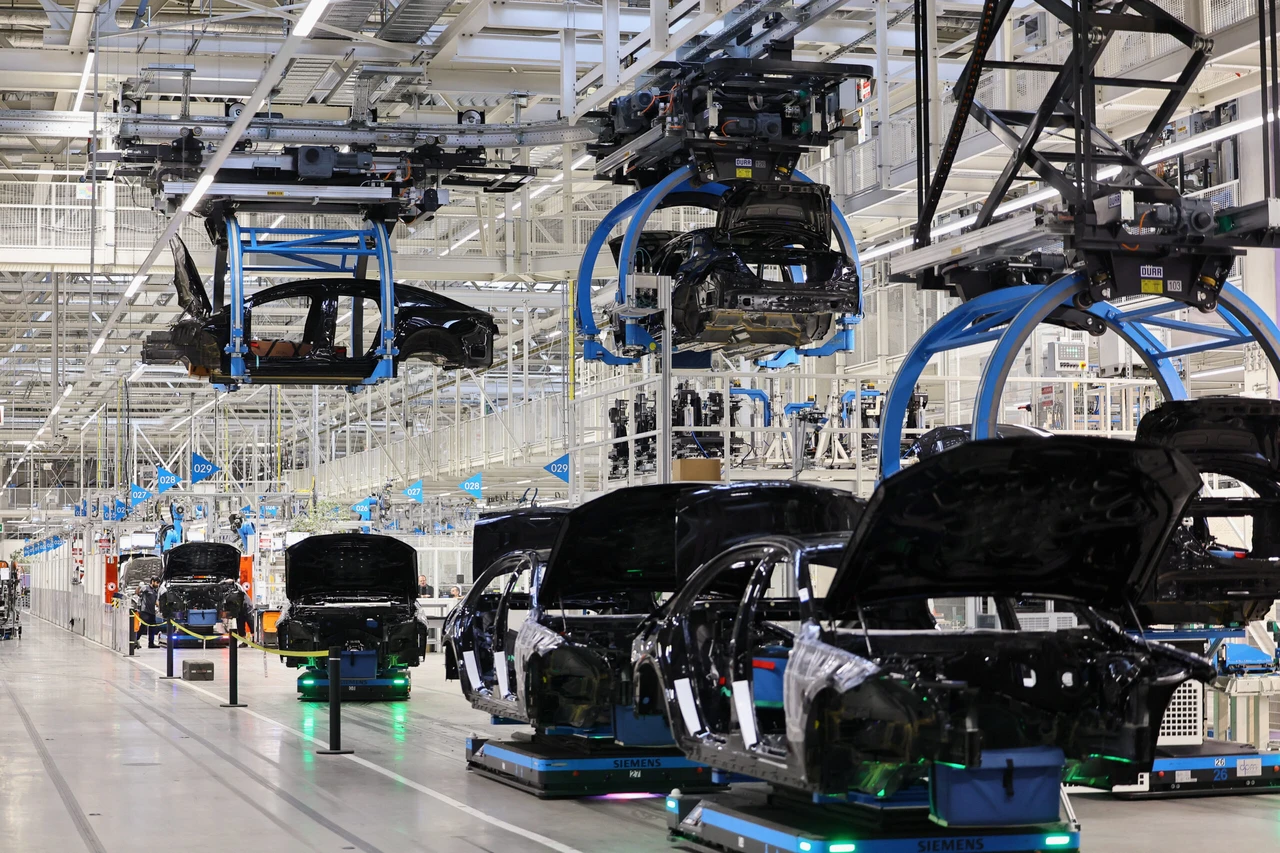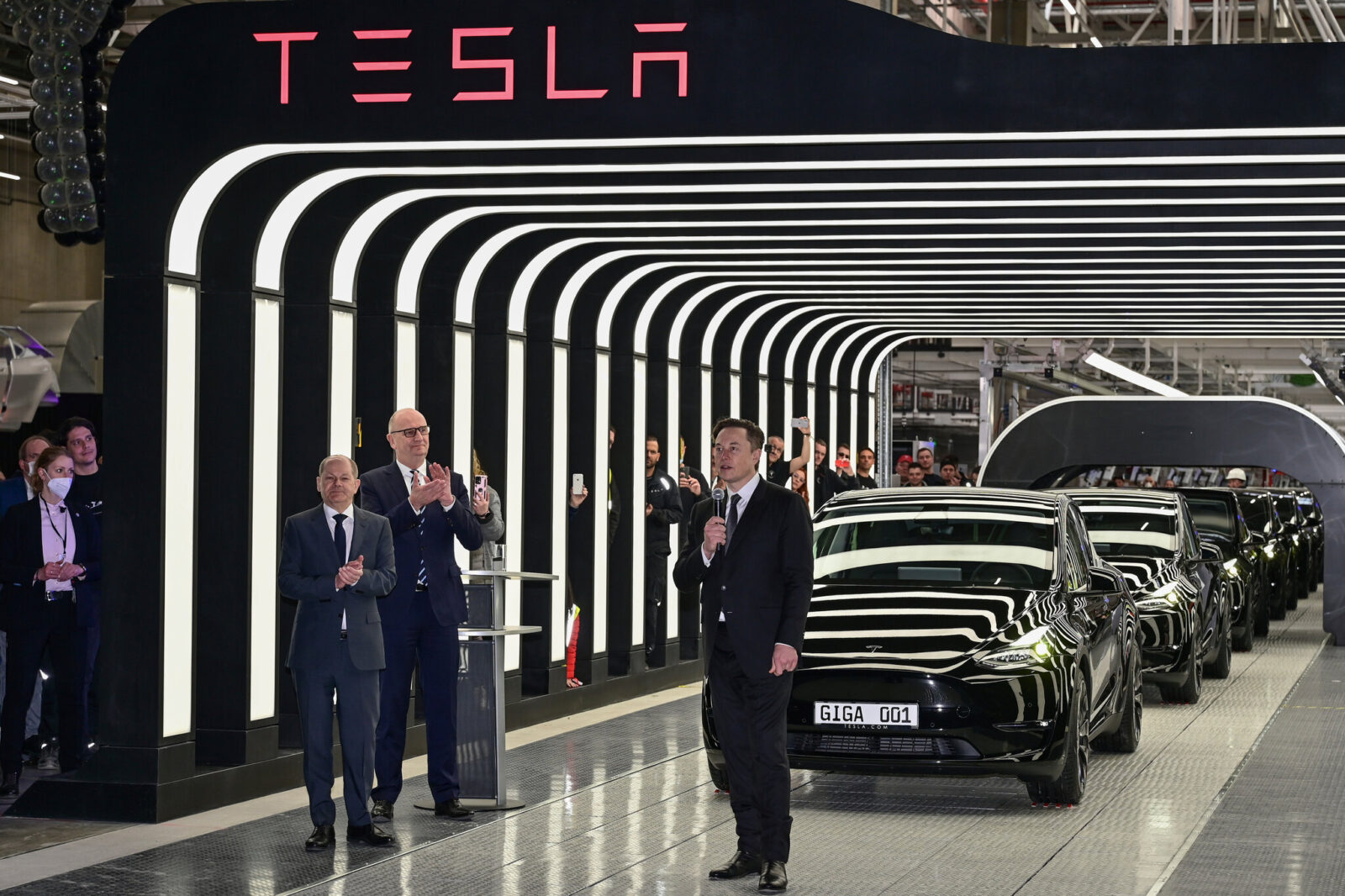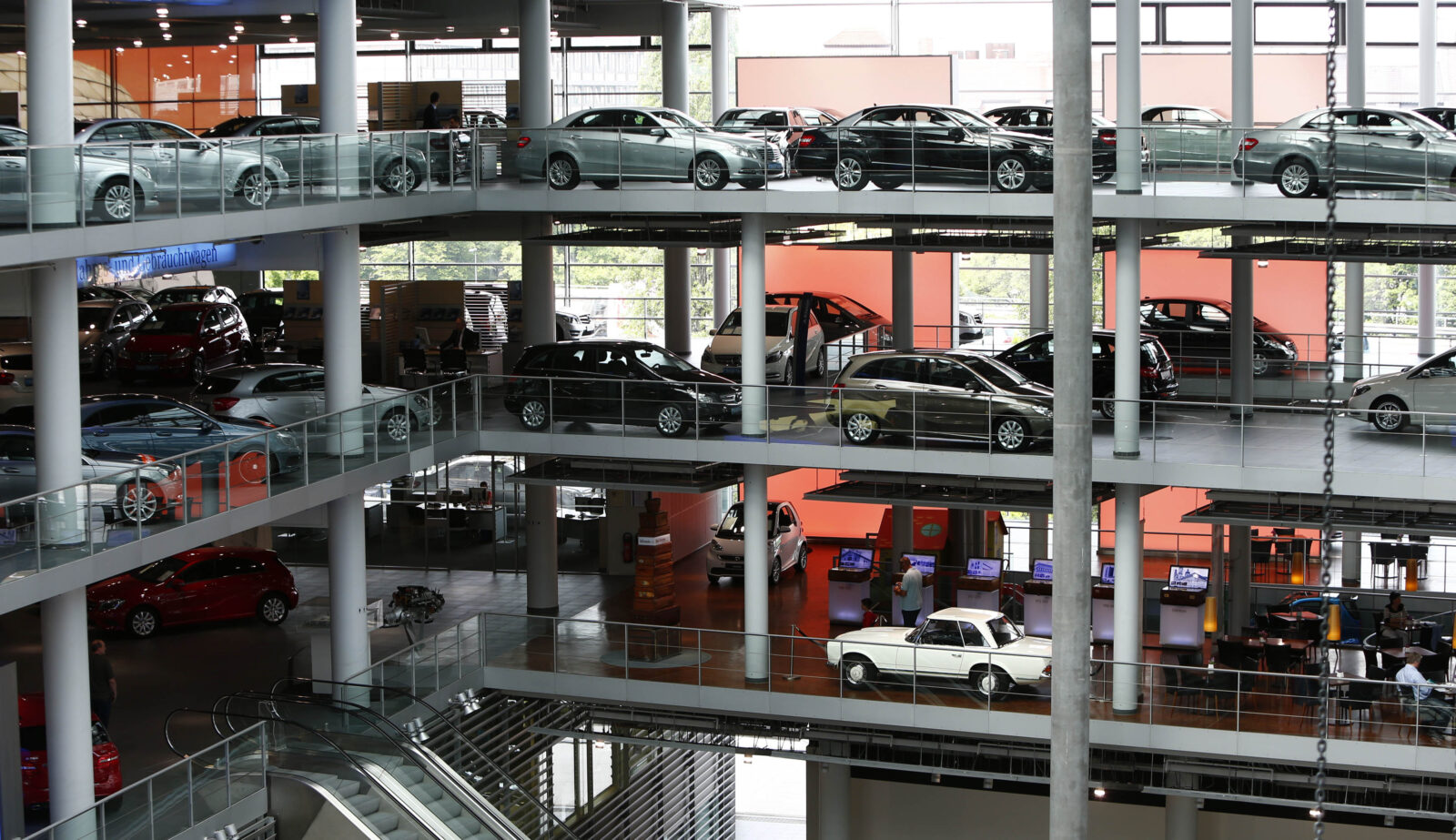Why Germany’s automotive industry is crucial to its economy
 Car bodies are lifted at "Factory 56", one of the world's most modern electric and conventional car assembly halls of German carmaker Mercedes-Benz, in Sindelfingen near Stuttgart, Germany, March 4, 2024. (Ruters/Wolfgang Rattay)
Car bodies are lifted at "Factory 56", one of the world's most modern electric and conventional car assembly halls of German carmaker Mercedes-Benz, in Sindelfingen near Stuttgart, Germany, March 4, 2024. (Ruters/Wolfgang Rattay)
Germany’s automotive industry, a longstanding economic pillar, is under increasing pressure as global competition heats up.
According to the Federal Ministry for Economic Affairs and Climate Action (BMWK), the sector remains Germany’s “most important industrial branch by far,” generating 564 billion euros ($628 billion) in revenue in 2023.
However, industry insiders warn that rising energy costs, competition from Chinese manufacturers, and a lag in electric mobility are threatening its future.
Key manufacturing hubs across Germany
Germany’s automobile production is spread across several key locations, with Volkswagen, Mercedes, BMW, Ford, and other major manufacturers maintaining plants in cities such as Wolfsburg, Bremen, Cologne, and Leipzig. Even Tesla entered the market in 2022, opening an electric vehicle production facility in Grunheide, Brandenburg.
Across the country, 22 plants manufacture complete vehicles, while others produce engines, drivetrains, and components.

Employment in automotive industry declines despite high wages
As of July 2024, approximately 773,000 people were directly employed in the German automotive industry, according to the Federal Statistical Office. This marks a decline from the 834,000 employees recorded during the 2018 employment peak.
Still, wages in the sector remain attractive due to union agreements, with entry-level positions after a three-year apprenticeship offering monthly salaries between 3,126 euros and 3,522 euros depending on the region. Senior employees with managerial responsibilities earn between 5,783 euros and 6,977 euros.

Dominating global markets
Two-thirds of the industry’s revenue comes from international markets, with the U.S. and China being critical buyers of German vehicles.
According to the German Association of the Automotive Industry (VDA), 70% of all jobs in the sector depend on exports.
In 2023, approximately 4.1 million cars were produced domestically, while another 10 million were manufactured by German companies abroad. Despite this output, production remains 12% below pre-pandemic levels, highlighting the ongoing challenges the sector faces.

Challenges facing German auto sector
The German auto industry is grappling with several significant hurdles.
The German Economic Institute (IW) notes that competition from China is a growing threat, with nearly one-third of global vehicles now produced in Chinese factories. These manufacturers, including BYD, can produce vehicles at significantly lower costs than their German counterparts.
Moreover, Chinese companies have been quick to adopt electric mobility, an area where German manufacturers have lagged.
Additionally, trade conflicts and tariffs further complicate matters for export-oriented German carmakers. High energy costs and lengthy approval processes in Germany are also cited by the IW as factors that are causing the country’s manufacturing base to fall behind in global competitiveness.



